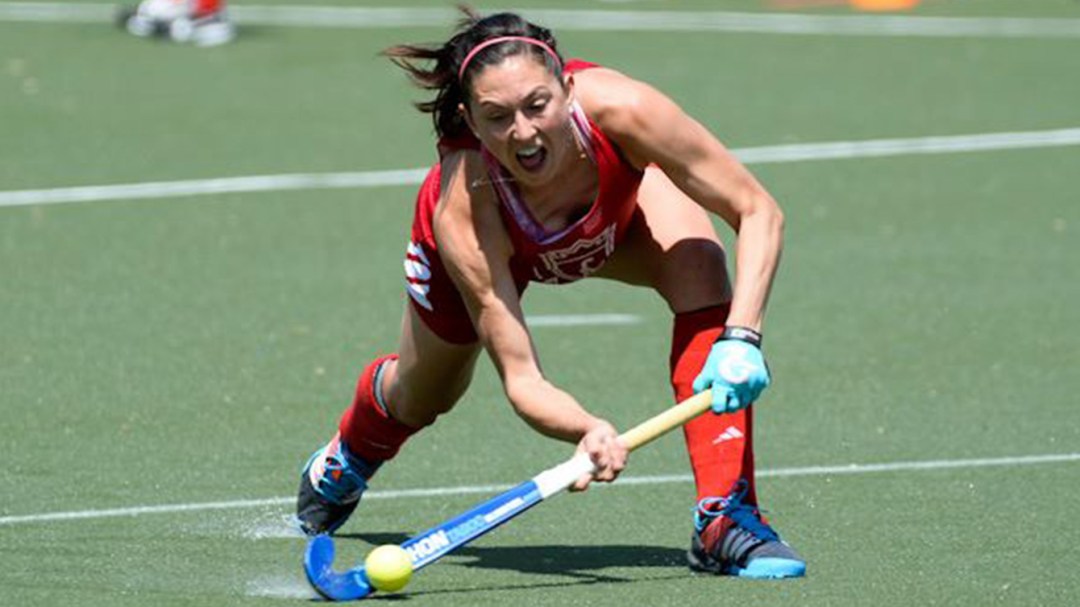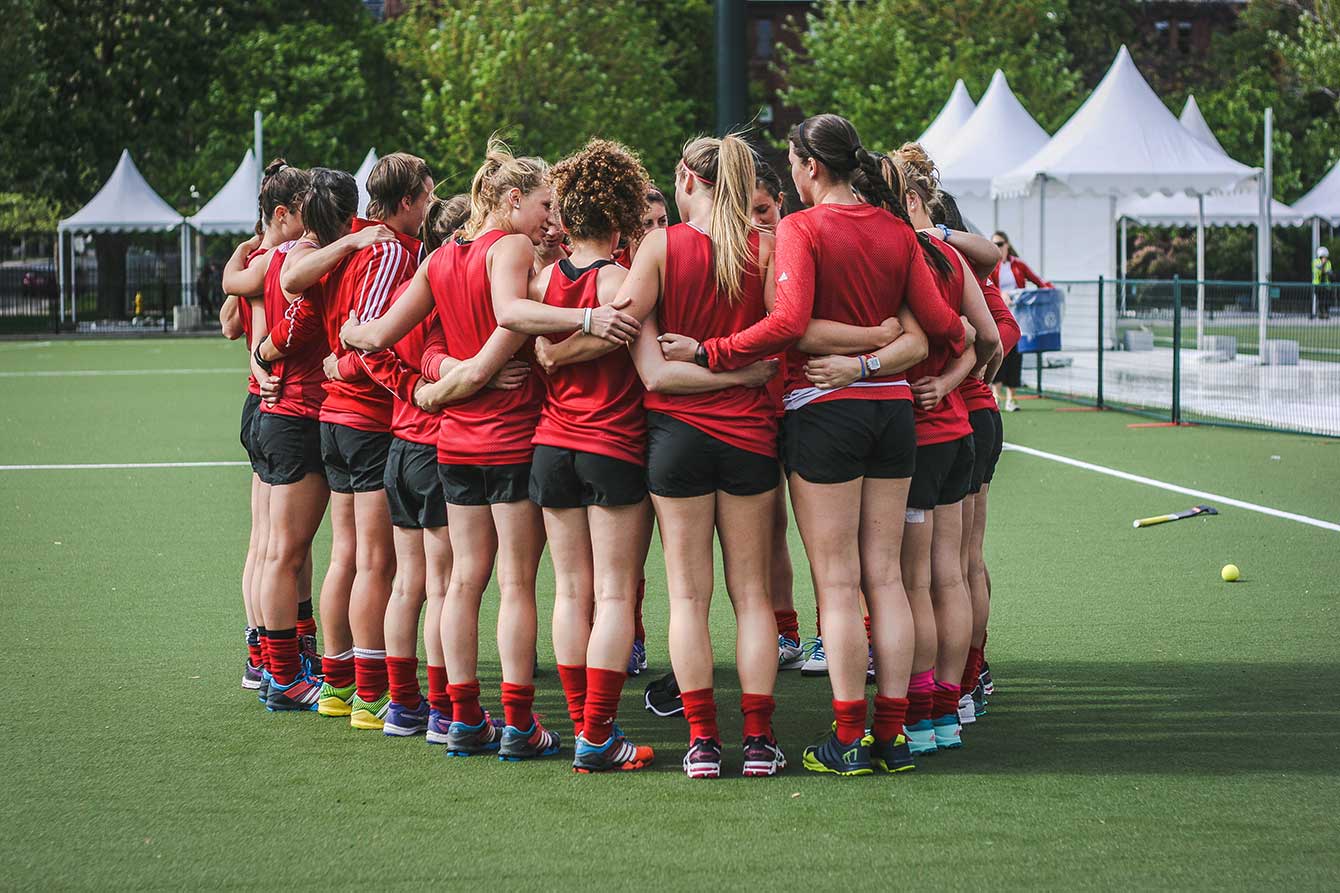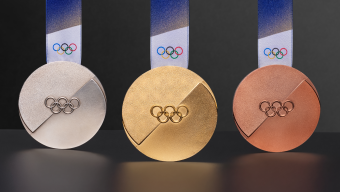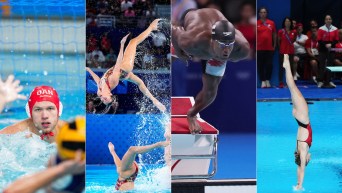‘Dark horse’ Canadians aim to surprise at World League Semifinals
Cover photo: Danielle Hennig, @FieldHockeyCan
Athletic packs of young women stride across the fresh turf stamped down at the University of Toronto’s urban campus.
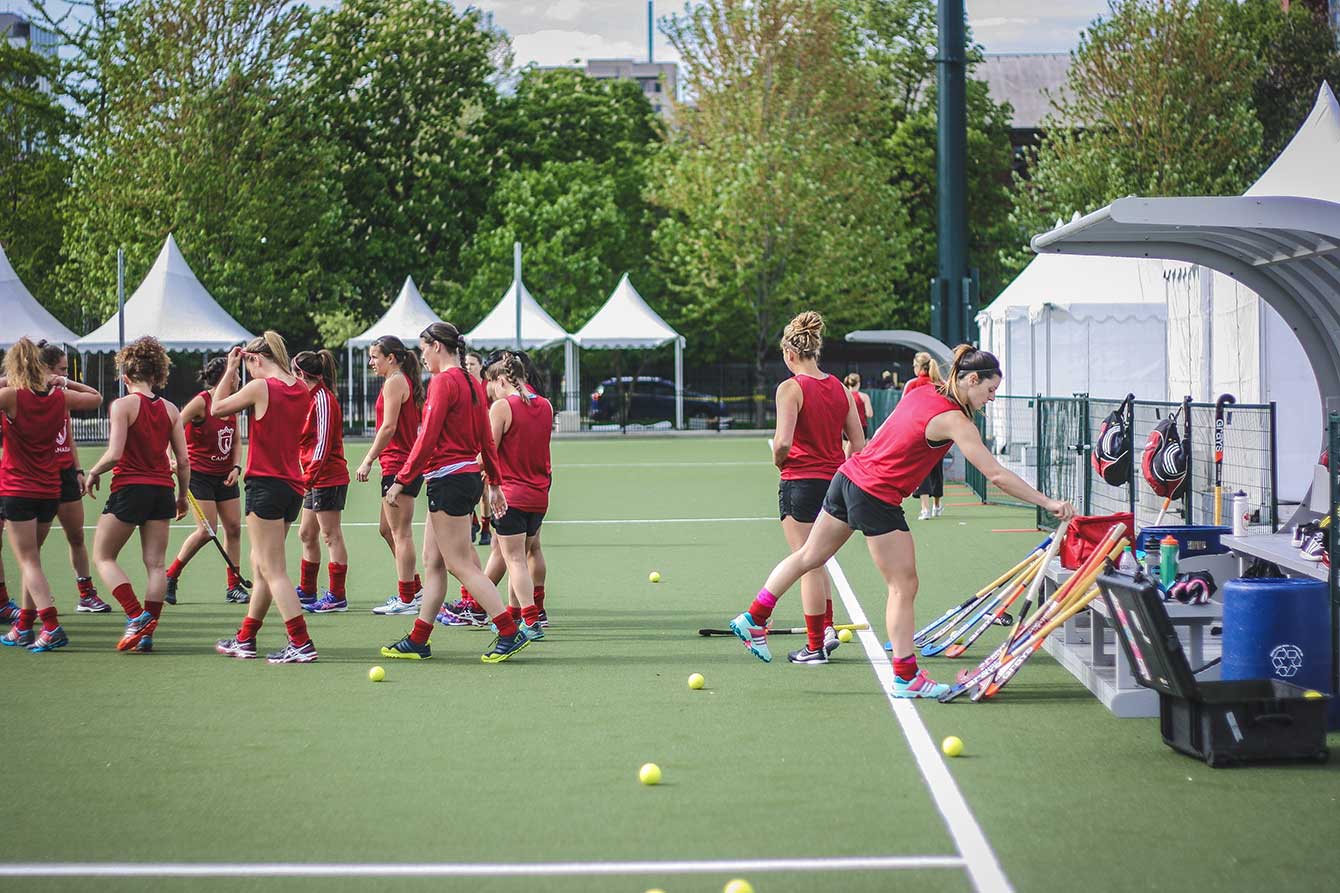
National field hockey team members prepare for a training session, May 21, 2015. (Photo: Alexa Fernando)
Their gait turns to a shuffle as they begin to collect under a covered bench, dropping their bags, slowly adopting the nonchalance of athletes adjusting to yet another training session.
Then the hoses come on.
Water hisses violently from pumping cannons in one corner of the field, turning toward the benches. “Oh, they’re going to get it,” observes a smiling teammate from outside the fray. And they do. Screams go up to meet the unwelcome shower. There’s laughter mixed with some discomfort and above all, exuberance.
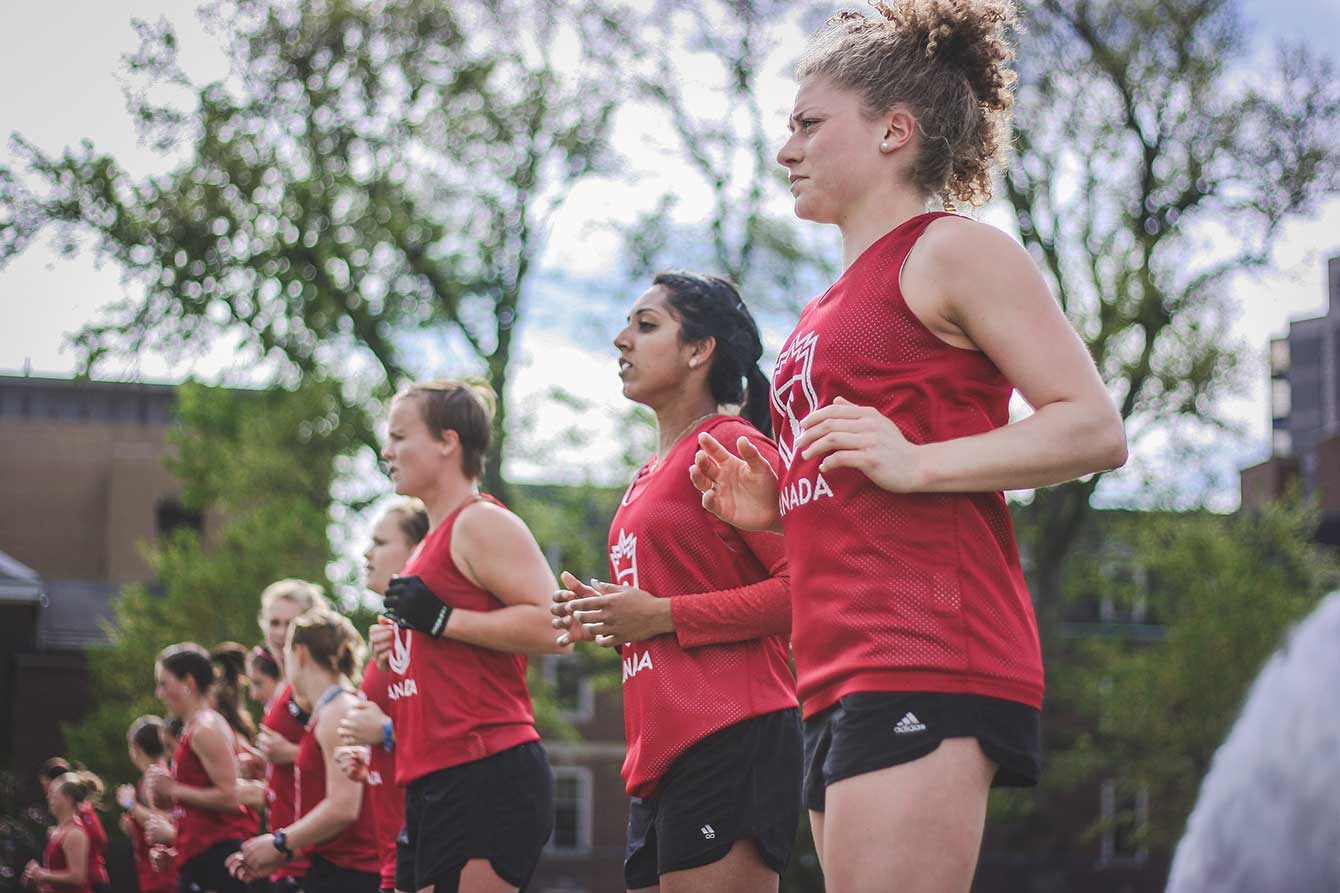
Members of the national field hockey team warm-up prior to training, May 21, 2015. (Photo: Alexa Fernando)
This was in late May, as the field hockey national team prepared for a string of competitions including this week’s World League Semifinals in Valencia, Spain.
The newest top-20 nation, Canada (20th) will be among ten teams vying for a top-three finish and Olympic selection, from June 10-21. All told, 12 teams will qualify for Rio 2016, the sum of another semifinals plus regional qualifiers and a host.
“We have some really tough competition, they don’t know too much about us so we’re kind of the dark horse,” said captain Kate Gillis who adequately describes world league semis as ‘faster and more competitive’ then says of the Canadian counter, “we’re trying to enter that and go all out, guns blazing and take every team by surprise.”
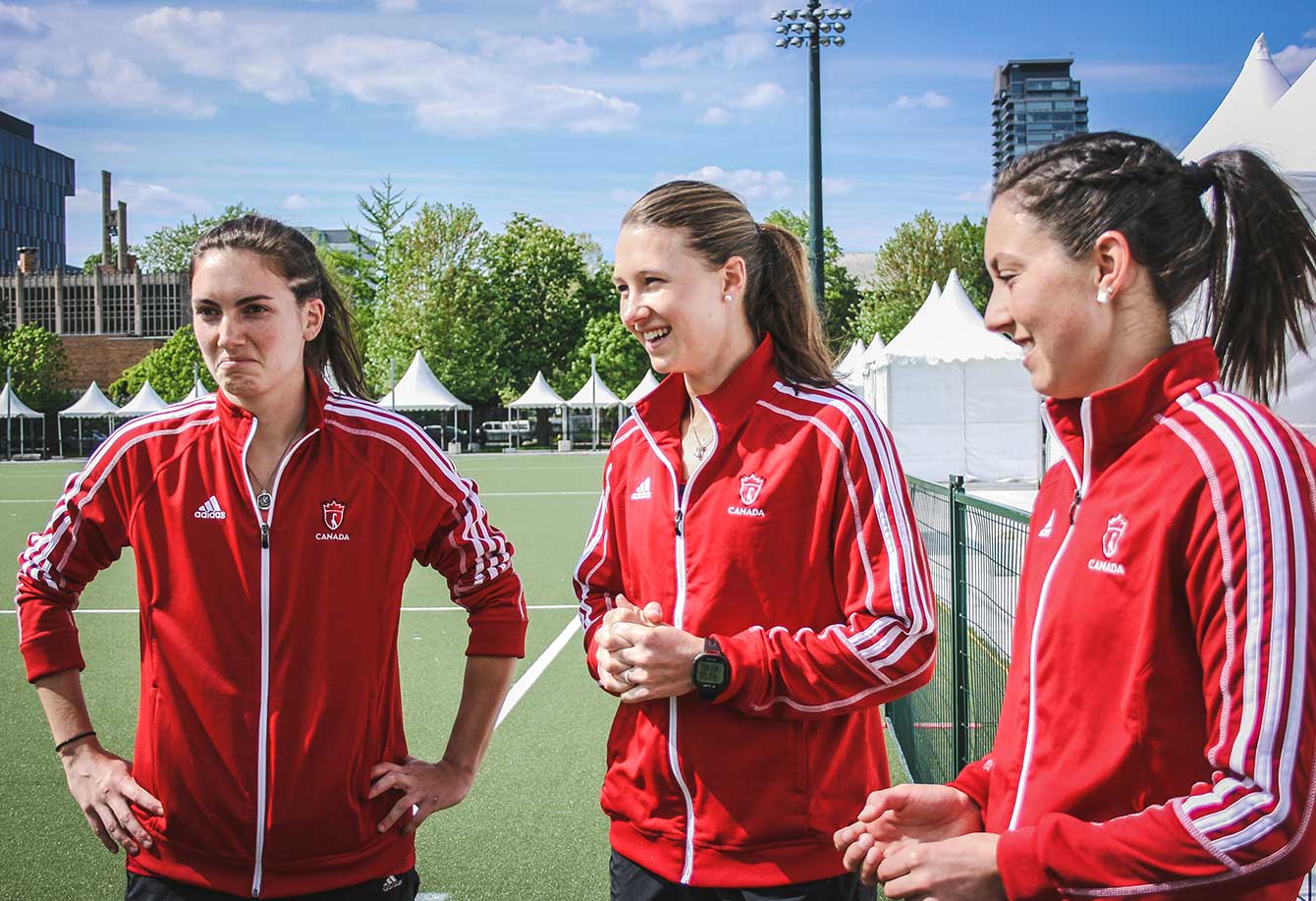
Captain Kate Gillis (c), with goaltender Kaitlyn Williams (l) and vice-captain Danielle Hennig (r) before a training session in May 2015. (Photo: Alexa Fernando)
They hope to be the first Canadian women’s team to qualify for the Olympics since 1992, and earned an extra shot by coming second at World League 2 in March. Beyond Valencia, there are the Pan Am Games, where the winner can qualify, “Pan Ams is super-exciting because it’s on home turf, but that’s the last chance for us to qualify so we’d really like to get it accomplished beforehand,” said vice-captain Danielle Hennig, a 24-year-old from Kelowna, BC. On the May afternoon when we interviewed her, Hennig describes the day-to-day focus required, including a test series against Ireland later that week. Canada won two of four matches against the 14th-ranked Irish before leaving for Spain.
RELATED: Olympic quest takes women’s field hockey team to Ireland
RELATED: World League semifinals underway for Canadian men
The test series was a good showing for a young squad. Gillis is 25, highest-capped Thea Culley is 29, and along with Hennig they are veterans on the team, but young by international hockey standards. According to head coach Ian Rutledge, the average age of medalling teams at the past two Olympics was 27, with average games played around 120. Canada measures out at 22-years-old, with 60 caps the average.
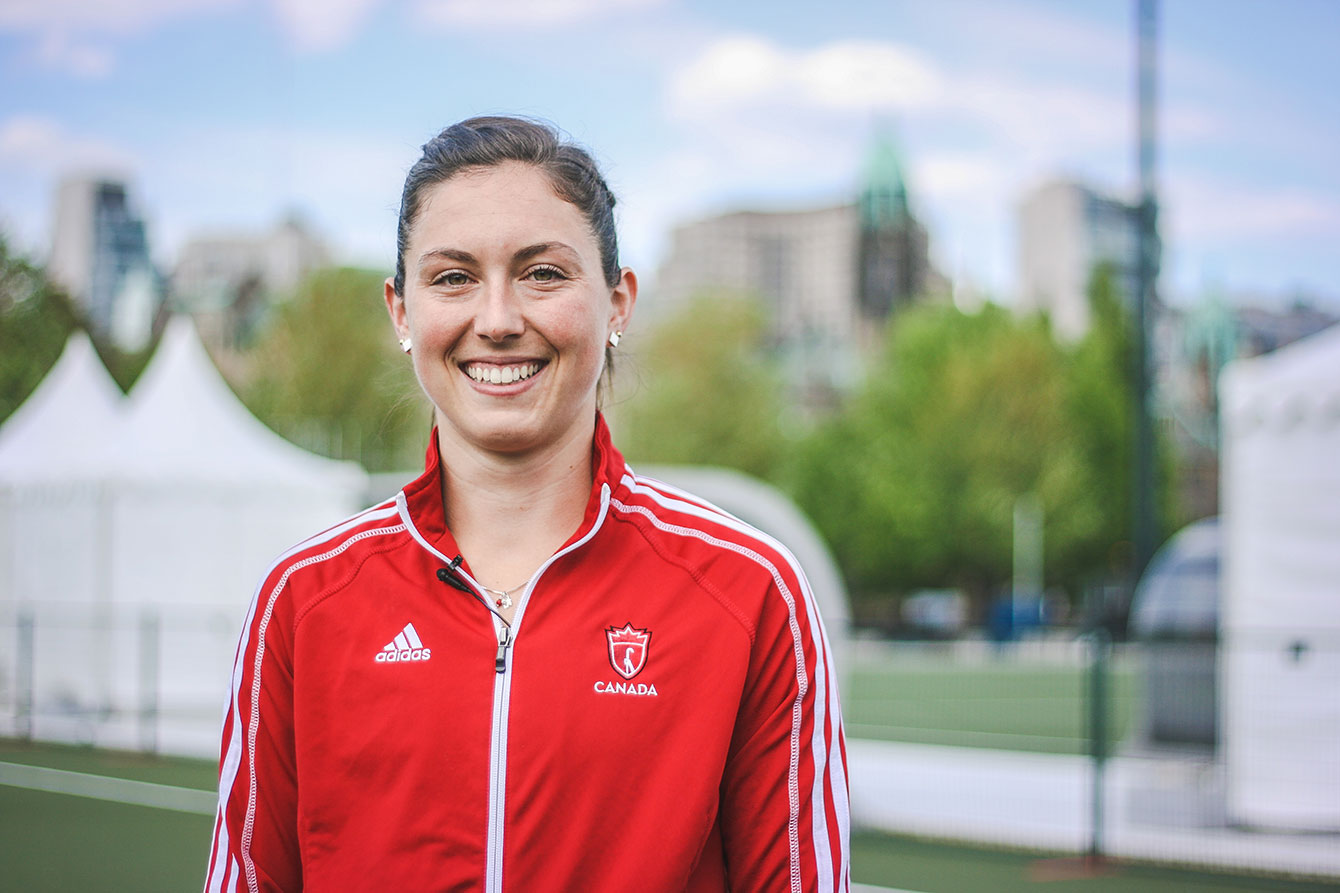
Vice-captain Danielle Hennig is 24, one of the more senior members of the Canadian team, yet three-years younger than an international average. (Photo: Alexa Fernando)
“We’re one of the youngest teams in the world,” says Rutledge, an Australian-transplant with experience at the Australian Institute of Sport and coaching New Zealand’s national women’s team. “It’s been a quantum shift for me from where the girls were to where they are now,” he says, having started in March of 2013 and led the team to the cusp of cracking the world top-20. With half the experience and five-years the junior of other top countries it would stand to reason Tokyo 2020 is a more likely prospect, “The goal is to get to the Olympics, while I’m excited about what the team will look like in 2020 you cannot be disrespectful to 2016, we’re desperate to get to 2016,” says Rutledge to that suggestion.
As practice commences that May day, some of the team is partially drenched, others are not, but they are all dialed-in. Casualness turns to resolution. Thea Culley calls for intentions in the group huddle, followed by a unified deep breath that counts as the only peace and quiet heard on the turf that day. Exhale. Chatter erupts again.
“We’re not going to be sitting back ‘Wow we’ve already had a win because we’ve made it to world league three’,” said Rutledge later, “No, we got there because we worked hard and now we want to reap the reward and go after Olympic qualification.”
Canada’s first game is Wednesday, June 10th against China. Find the rest of the schedule here.

